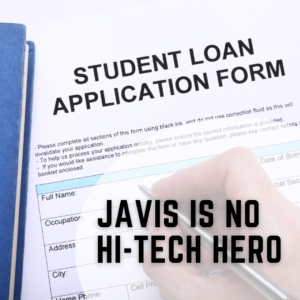 In my role (and passion) as a national keynote speaker on business ethics and as a business ethics consultant and book author, I am always a tad skeptical of the achievement awards that are doled out by associations and the media.
In my role (and passion) as a national keynote speaker on business ethics and as a business ethics consultant and book author, I am always a tad skeptical of the achievement awards that are doled out by associations and the media.
There is often a rush to grant awards before due diligence. It is not necessarily harmless, especially in this time of social media. We, as a society, are head-over-heels in love with creating buzz. Awards bring “credentials,” and credentials bring investment and therein is the problem.
“30 Under 30”
Every year, those of us who are older are given the opportunity to feel really old, as awards are given to 30 individuals under 30 who are seen as having huge potential influence on the world. But, not so fast.
Charlie Javice a 31-year-old phenom, has just been freed on a $2 million dollar bail. She was arrested in New Jersey, and was unceremoniously charged with fraud. She was arrested following charges that she allegedly lied to her company’s buyers at J.P. Morgan Chase (JPMC).
Most specifically, she seems to have lied about the number of customers her acquired company (“Frank”) allegedly had. When her company was put up for sale, Javice walked away with a cool $45 million.
U.S. Attorney Damian Williams said:
“She lied directly to JPMC and fabricated data to support those lies — all in order to make over $45 million from the sale of her company. This arrest should warn entrepreneurs who lie to advance their businesses that their lies will catch up to them, and this Office will hold them accountable for putting their greed above the law.”
Naturally, the attorneys for Javice are scrambling to deny the accusations.
Behind the curtain
The student loan business can be lucrative however, the application loan process was seen to be overly complex. Javice’s company supposedly simplified the loan process. JPMC became interested in the technology.
The trick in terms of perpetrating the fraud of course was to trick the bank into believing there was great demand for the product. Charlie Javice found what is called a “data scientist” to build a fake database of users. The fake database was impressive enough to make the bank believe Javice’s company had 4.25 million users (each user, of course, allegedly paying processing fees). She also bought another database (a real database) of another 4.25 million college students. We can imagine that when the two lists were merged, it was impressive even to the hardened bankers.
Javice is facing charges of conspiracy, securities fraud and wire fraud. All influencing and social media posturing aside, she is facing up to 50-years behind bars.
OK Boomer
The derogatory, inter-generational war cry of the Millennial versus “the old people,” or “OK Boomer,” represents, as has the generational squabbling since the dawn of time, the absolute assurance of intellectual superiority. In this case, it seems, that Charlie Javice felt her hi-tech knowledge was more than enough to snow the old people at JPMC with mounds of data. It was an enormous rationalization but more so, an enormous, calculated risk.
For it doesn’t work that way, the way the 30 Under 30 phenom thought it would unfold. JPMC undoubtedly has an entire army of hi-tech geniuses, Millennial, Gen-X and Boomer alike, who started erecting red flags. They saw through it all, it seems, when sales were paltry compared to projections.
It is a head scratcher to ask why no one at JPMC really deep-dived the databases beforehand, but it became altogether clear.
The case has eerie parallels to the Theranos debacle and it has nothing to do with gender, but with the attempt to cover a lie with faulty data and media “influence.” It’s tragic, of course, but it’s also preventable.
As a national keynote speaker on business ethics and as a business ethics consultant and book author, I know we too often confuse appearance with substance. Charlie Javice could be facing years of misery for believing that she knew more than the next guy. She didn’t and no one, apparently, ever taught her otherwise.
LEAVE YOUR COMMENTS!


